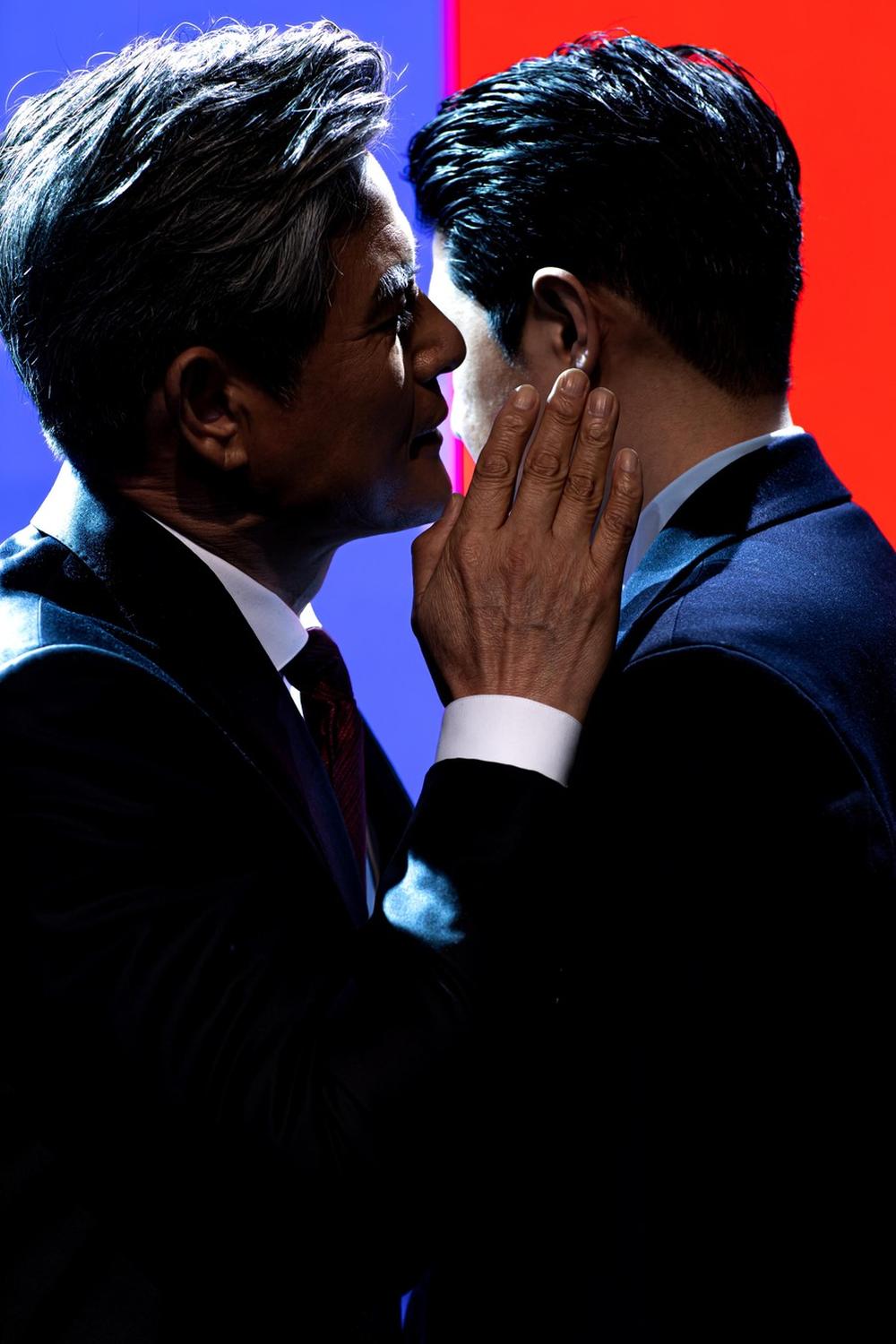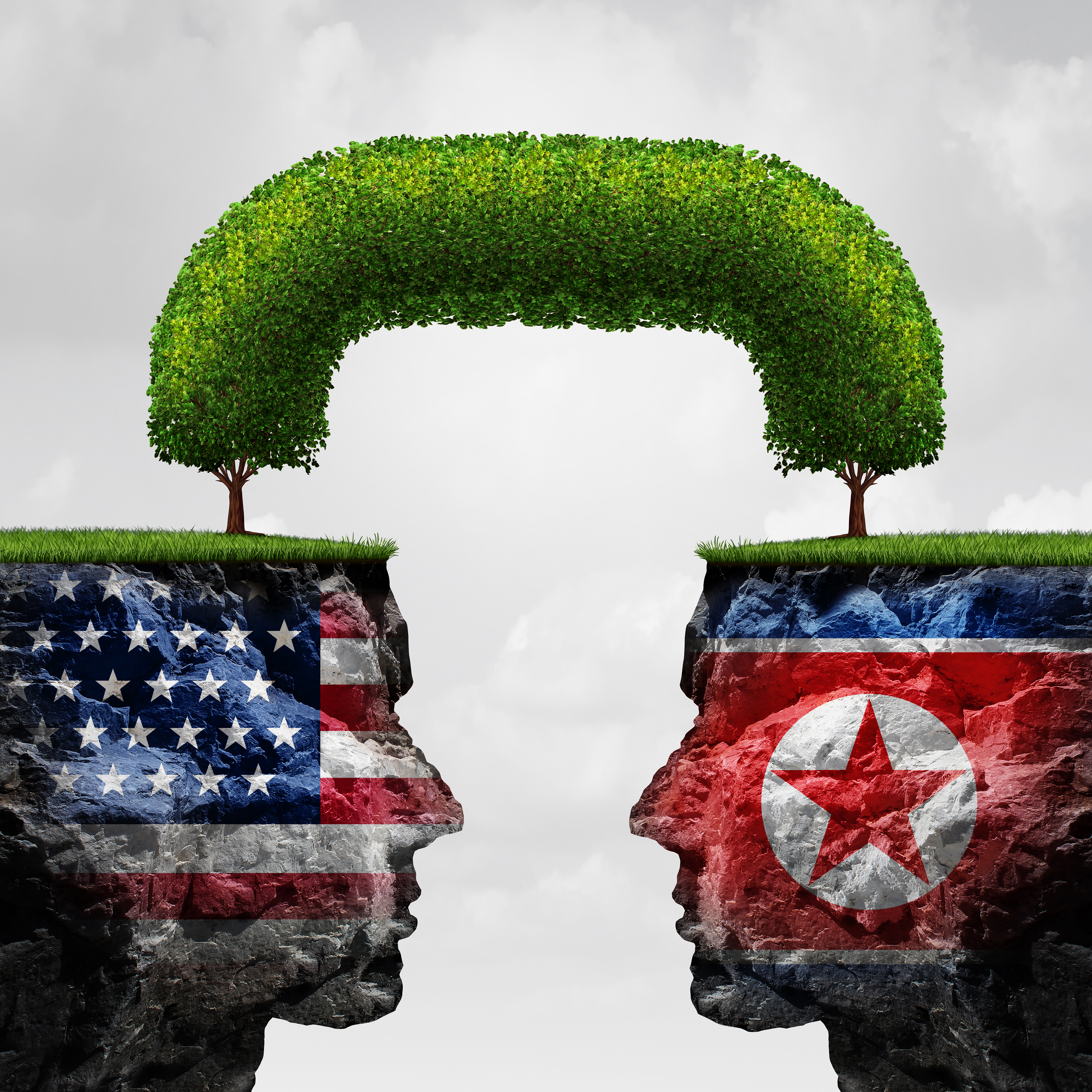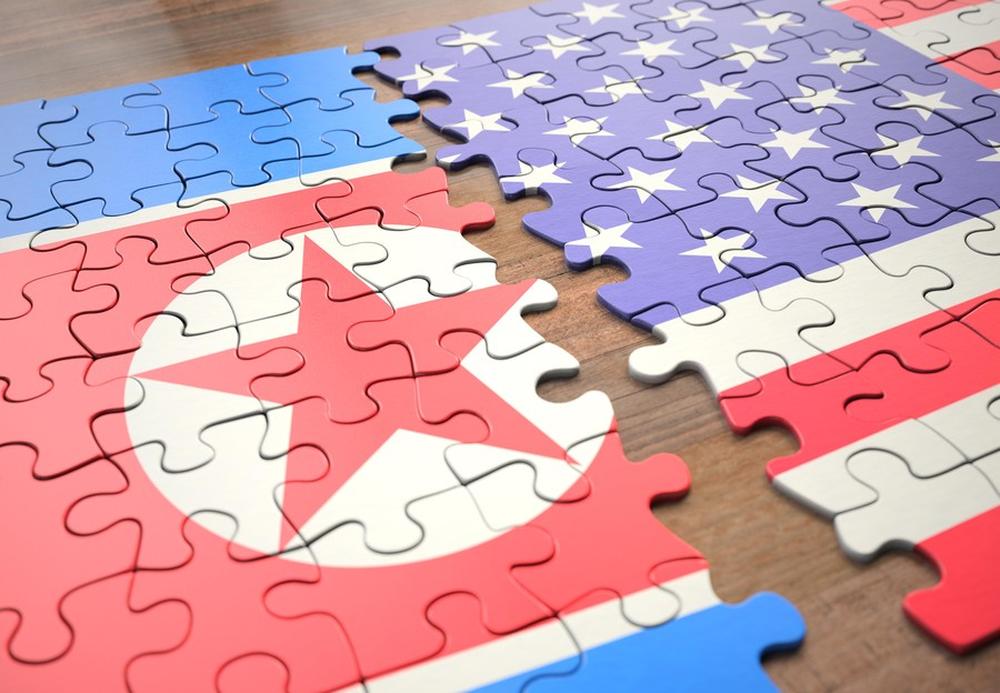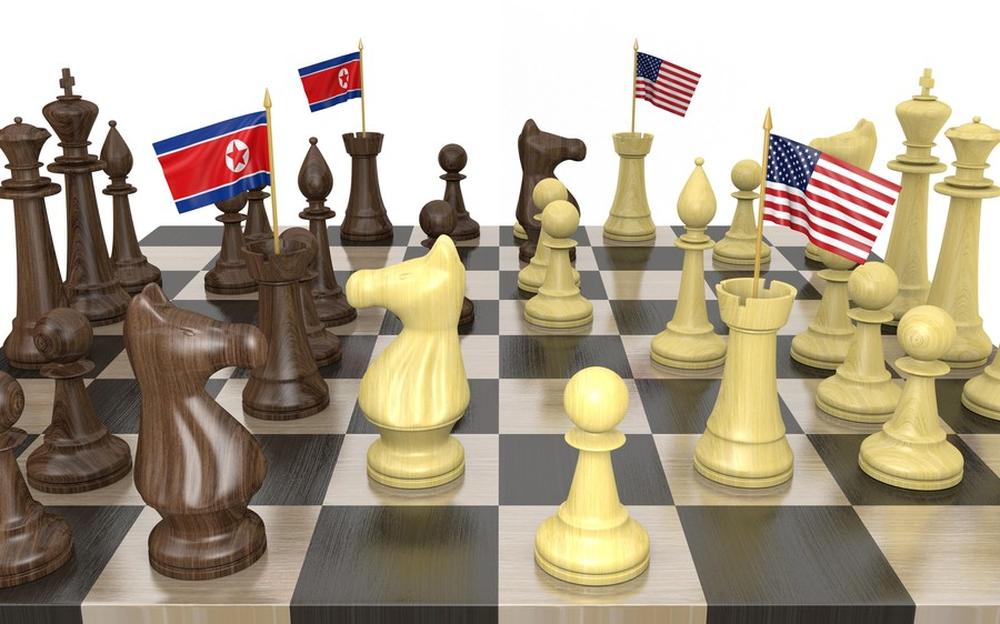- #Inter-Korean Relations
- #North Korea
- #Sanctions & Human Rights
- #US Foreign Policy

The Korean Peninsula Peace Process has failed to make progress since negotiations in Hanoi broke down. Even though the inauguration of the Biden administration raised hope that things will turn for the better, we have yet to witness any concrete development. There are positive signs however. Engagement lies at the center of the current United States’ North Korea policy and the Biden administration has declared that it is willing to tackle the issue through dialogue. The first ROK-U.S. summit meeting between President Moon and President Biden re-affirmed this approach as well as their commitment to the Panmunjom Declaration and the Singapore Joint Statement. Most notably, “complete denuclearization” and “permanent peace on the Korean Peninsula” were mentioned in their joint statement for the first time. The statement also included President Biden’s support for inter-Korean dialogue, engagement, and cooperation. Recently, we received welcoming news that the inter-Korean communication line was restored. Since April, the leaders of the two Koreas have exchanged letters and agreed to restore trust and move inter-Korean relations forward as soon as possible.
Despite these developments, it appears that the current deadlock will continue for the foreseeable future. While the United States has left the door open for negotiations, it has been busy dealing with domestic issues. It appears unlikely that the U.S., which holds the key to negotiations, will actively propose a remedy. North Korea, on the other hand, has maintained its aggressive isolation against COVID-19. Without the United States making the first move, North Korea will most likely direct its efforts to controlling the North Korean people while observing the upcoming Korea’s presidential election and improving its relations with China and Russia. For the United States, North Korea has remained a dilemma for the past several decades and a negative agenda without any political benefits. It has extreme distaste for North Korea, which has led many to demonize the North and reject the possibility of normalizing bilateral relations and offering economic aid, even in exchange for denuclearization. However, the United States has much to gain from normalizing bilateral relations and denuclearizing North Korea, which could open up the possibility of regime change in North Korea as well as peace on the Korean Peninsula and in Northeast Asia.
In order to break the diplomatic stalemate and attain peace, the Biden administration must first avoid the following three preconceptions. First, it must abandon the “North Korea collapse” scenario. North Korea has not only survived the “march of suffering” during the 1990s, but it has also successfully developed nuclear weapons. The North Korea collapse scenario has only raised the costs associated with denuclearization. North Korea’s recent bouts with COVID-19, floods, and economic sanctions have led to the re-emergence of this scenario and, along with it, calls for strengthening economics sanctions. While North Korea is facing grave difficulties, it is far from a collapse. The false hope that sanctions or pressure will lead to the collapse of Kim Jong Un and his regime remains a decades-long myth. Moreover, North Korea’s two most important allies will not allow its regime to collapse.
Second, the United States should free itself from the preconception that the North will not give up its nuclear weapons under any circumstances and that dialogue serves only as a delay tactic to strengthen its nuclear forces. North Korea’s commitment to nuclear weapons is not a fixed principle. Rather, it is subject to change based on the conditions and situation that the North finds itself in. Chairman Kim Jong Un’s promise of “conditional denuclearization” is premised on the idea that North Korea will give up its nuclear weapons only if the alternative is better than possessing nuclear weapons. If it is reasonable for us to want to give the least and ask for denuclearization as soon as possible, it is also reasonable for North Korea to want to receive the most and delay denuclearization as much as possible. Therefore, denuclearization will depend heavily on our diplomatic capabilities. The preconceived notion that North Korea will never give up nuclear weapons will only stand in the way of the United States’ active commitment to resolve the issue. It also gives North Korea the false impression that the United States has given up and that it is indeed possible for a country like North Korea to become a nuclear power.
Third, the United States must refrain from making the one-sided conclusion that President Trump’s North Korea policy was an abject failure. It is true that Trump’s unpredictability and lack of principle have raised unnecessary expectations and failed to bring about irreversible denuclearization. It was extremely regrettable that he left the negotiation table without further dialogue to induce North Korea’s concessions soon after the North had made its offer in Hanoi. However, it is also true that Trump was successful in making North Korea a high priority for U.S. foreign policy, lowering the threshold for a summit meeting with North Korea, and restraining North Korea from conducting further nuclear and ICBM testing.
In addition to eliminating these three preconceptions, the United States must also change its methodology. Without mutual trust, a comprehensive solution cannot work. Therefore, a step-by-step approach offers the only road to success. Of course, the United States’ resistance to salami tactics—a divide-and-conquer process to delay negotiations and aim for the most reward—is understandable. However, considering North Korea’s rapid advances and diversification of its nuclear capabilities, a “grand bargain” denuclearization deal seems even more unrealistic. The chances of success seem greatest when the process is divided into 2-3 broad stages. Within the Korean government’s official position of wanting a “comprehensive agreement with phased implementation,” the Hanoi Summit must be considered as the intermediate step in the journey towards exchanging Yongbyon for sanctions relief. The United States and Iran’s Joint Comprehensive Plan of Action (JCPOA) could serve as an example of this intermediate step, although we must be wary of the fact that the two cases are not systematically compatible.
Time is on no one’s side. Statements such as the one made by U.S. Secretary of State Antony Blinken that the “diplomatic ball is on your [North Korea] court,” will only delay resolution of the issue and raise the likelihood of repeating the policy of strategic patience. Under the slogan of “power for power, goodwill for goodwill,” which was announced during the 8th Congress of the Workers’ Party of Korea earlier this year and the meeting of the party's central committee in June, North Korea has taken a “wait-and-see” approach vis-à-vis the United States. Fundamentally, this implies that North Korea will counter economic sanctions with self-reliance. At the same time, it also hints at North Korea’s willingness to engage in dialogue if the United States moves first. If we do not want to find ourselves in an undesirable situation while waiting for one side to make the move first, swift and bold initiatives are required. Fortunately, mutual trust between the Republic of Korea and the United States appears robust, unlike during the Trump Administration. Based on this mutual trust, the Republic of Korea must take the bold initiative to promote inter-Korean exchanges by seeking exemption (under exceptional circumstances) within the sanctions regime.
While impatience should be avoided, urgency is much needed. The ROK government simply cannot look to manage the situation because of President Moon’s lame duck presidency. It does not make sense either to expect the United States—a direct participant of the denuclearization negotiations—to wait for the next ROK administration to take office. The Biden administration has made it clear that a summit with Kim Jong Un will not take place until North Korea makes the first move. However, this can be perceived by North Korea as a strengthening of U.S. hostile policy. Failing to make the first move could inadvertently end up bringing back the policy of strategic patience. In the end, we have to create an opportunity where the United States and North Korea could respond simultaneously. Humanitarian assistance to North Korea is one area that can provide this window of opportunity. Since humanitarian assistance is not targeted by sanctions, the United States could provide vaccines, while Korea could provide food and fertilizers. To be most effective, the two sides should also declare that these humanitarian items will be distributed through various international organizations and that there are no preconditions for resuming dialogue.
For North Korea, moving supplies and allocating human resources are difficult due to the COVID-19 lockdown. Therefore, we must direct our efforts to arranging secret talks and negotiations involving only a small number of individuals. So far, U.S.-DPRK summit meetings and negotiations were challenged by their “public” nature. Given the growing impact of domestic politics on diplomacy, the intricate process of negotiating the conditions of exchange must remain confidential. Since Korea and the United States both reaffirmed their commitment to the Singapore Joint Statement and the Panmunjom Declaration, it makes sense for the involved parties to revisit the Hanoi process. Returning to the point of failure, the United States and North Korea must re-assess their diplomatic calculations. Yongbyon could be exchanged for partial sanctions relief, while North Korea’s commitment to a nuclear freeze and the United States’ guarantee of regime survival could serve as a foundation on which to expand the scope and scale of negotiations. Even if North Korea finds itself dissatisfied with the items involved, it could steer the negotiations in its favor by responding to these initiatives.
Joon Hyung Kim is chancellor of the Korea National Diplomatic Academy (KNDA), an affiliated institution of the ROK Ministry of Foreign Affairs. Prior to being appointed as chancellor, he served as professor at Handong Global University’s Department of International Studies (1999-2019), planning director and director of the Foreign Policy Research Center at the Korea Peace Forum (2013-2019), member of the State Affairs Planning Advisory Committee’s Subcommittee for Foreign Affairs and Security (2017), member of the National Security Council Advisory Committee (2017-2019), Advisory Committee Chair for Reforming the Ministry of Foreign Affairs (2017-2019), and member of the Presidential Commission on Policy Planning (2017-2019). Chancellor Kim graduated with a B.A. in Political Science from Yonsei University and holds both an M.A. and Ph.D. in Political Science from George Washington University.


